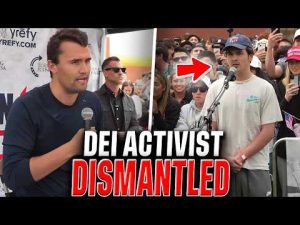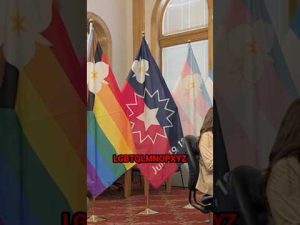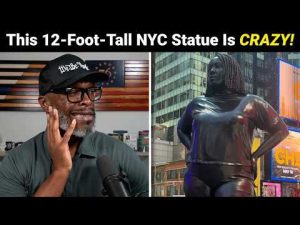**Chaos in Seattle: A Return to the “Summer of Love”**
In recent events that have shaken the city of Seattle, a group of self-identified Antifa militants has taken to the streets, creating mayhem reminiscent of the infamous “Summer of Love” protests of 2020. The scene has involved fires being lit, confrontations with law enforcement, and a surprising lack of accountability for those involved in these acts. Observers are left wondering if this is merely a summer flashback or the beginning of a new wave of civil unrest.
Footage emerging from the heart of the protests shows supporters wielding makeshift shields made from garbage cans, an odd yet oddly comedic image of chaos. As police struggled to manage the situation, many have questioned the effectiveness of the city’s leadership and law enforcement. It’s hard not to smirk at the irony: a modern city overrun by militant groups, seemingly empowered by a political environment that encourages chaos rather than control. Some might say this is what happens when you vote for policies that do not prioritize the safety and security of local communities.
Critics argue that this situation reflects a deeper issue—one of boredom among protestors who may have too much time on their hands and too few legitimate causes to support. The notion of “first-world problems” has never seemed more applicable, as it raises questions about what drives people to participate in such disruptive behavior. It’s almost as if, armed with information from social media, these young activists are simply looking to fill their time, regardless of whether their actions contribute to meaningful social change.
Moreover, some have pointed out that the lack of consequences for criminal behavior continues to exacerbate the situation. Painting a picture of law enforcement cowering before a group of rowdy protestors only demonstrates a failure in leadership. Why is it that law enforcement takes a step back when faced with blatant violations of property rights? Their hesitance to act raises many eyebrows. After all, allowing protesters to operate without repercussions might just entice more to join the fray and create further chaos.
This brings us to the question of accountability. Critics note that property crimes are often disregarded, contributing to a culture where individuals feel free to act without fear of repercussions. Instances where individuals can steal up to a certain amount without facing arrest send the troubling message that property rights are secondary to other narratives. When people realize there are no consequences for crimes that truly hurt others, why wouldn’t they feel emboldened to continue breaking the law?
As summer approaches, one cannot help but wonder whether Seattle will return to this unsettling norm. If local leaders don’t recognize that these issues stem from a complete disregard for personal property rights and consequences for crime, the “Summer of Love” could easily become a summer of chaos once again. It’s crucial that both citizens and officials understand the need for order and the importance of holding individuals accountable for their actions. So, as we gear up for another sunny season, let’s hope for less fire and more accountability in our streets.







